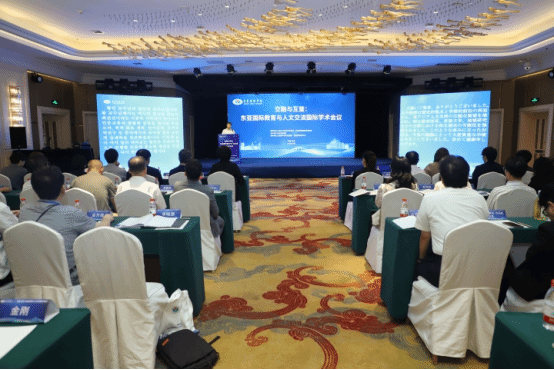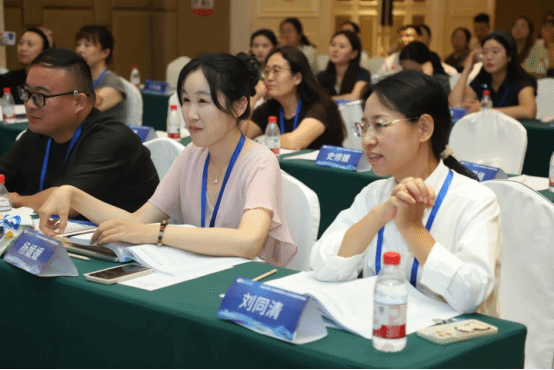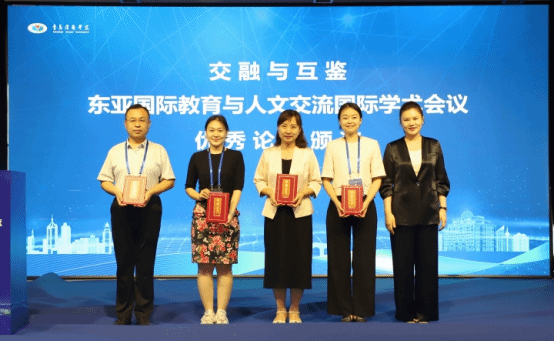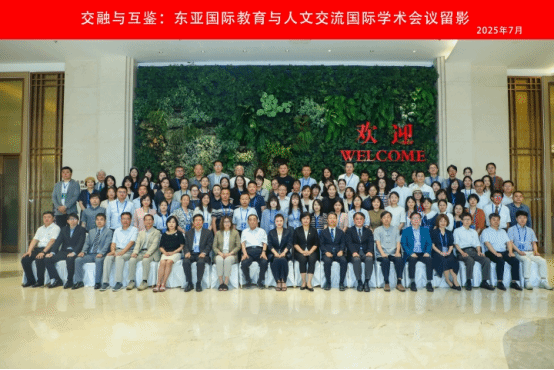On July 12, 2025, guided by the Shandong People’s Association for Friendship with Foreign Countries and Shandong Association for International Exchange and Cooperation, and hosted by Qingdao Binhai University, the “Integration and Mutual Learning: International Academic Conference on International Education and Humanities Exchange in East Asia” was held at the International Academic Exchange Center of Qingdao Binhai University. With the vision of “deepening educational cooperation in East Asia and promoting mutual learning through cultural exchanges”, the conference attracted over 150 experts and scholars from renowned universities in China, Japan, and South Korea to gather and discuss the future development directions of international education cooperation and humanities exchange in East Asia.

In her welcome speech, Han Xiaomeng, the Executive Vice President of Qingdao Binhai University, stated that China, Japan, and South Korea are geographically close and share cultural affinities, making it of great significance to deepen educational cooperation and cultural exchanges to promote common regional development. She expressed her hope that this conference would serve as an open and inclusive academic platform to foster in-depth collaboration among East Asian countries in areas such as language education, cultural dissemination, and regional studies, thereby pooling wisdom and contributing to enhanced mutual understanding and shared development in the region.

Wang Dan, Associate Dean of the School of Foreign Languages at Peking University; Hisako Oyama, Deputy Consul-General of the Consulate-General of Japan in Qingdao; Choi Kang-seok, Deputy Consul-General of the Consulate-General of the Republic of Korea in Qingdao; and Kim Hyun-cheol, Dean of the China Institute at Yonsei University in Korea, delivered speeches respectively at the opening ceremony, highly praising the significance of this conference in promoting educational cooperation and cultural exchanges among China, Japan, and South Korea. They unanimously agreed that the conference provided a valuable platform for scholars from the three countries to exchange ideas, deepened regional educational collaboration, and offered strong support for fostering mutual learning among civilizations.
After the opening ceremony, six experts and scholars delivered keynote speeches. Jin Bingmin, a professor from Yanbian University, explored “The Construction of Subjectivity in East Asian Culture” from a philosophical perspective. Nam Min-gu, a professor from Hankuk University of Foreign Studies, proposed new ideas for interdisciplinary education under the theme of “The Integration of Technology and Humanities”. Xiu Bin, a professor from Ocean University of China, used history as a mirror to elucidate “The Pivotal Role of Maritime Civilization in Cultural Exchanges in East Asia”. Additionally, Jin Hezhe, a professor from Qingdao Binhai University; Tayoko Koshiyama, a professor from Kansai University of International Studies in Japan; and Kang Hyun-hwa, a professor from Yonsei University in Korea, shared cutting-edge research findings on topics such as comparative Sino-Korean poetics, language education, and cultural dissemination, respectively, providing rich academic insights for the attendees.

The conference featured an award ceremony to
honor the authors of outstanding papers.
During the parallel session phase, scholars engaged in in-depth discussions across seven themes, including international Chinese language teaching and practice, collaborative development of education in East Asia, international dissemination of Chinese culture, and comparative studies of Chinese and foreign languages and literatures. A total of over 90 academic papers were submitted for the conference, covering both theoretical explorations and practical innovations, fully demonstrating the vibrant research landscape and fruitful achievements in the field of international education and humanities exchange in East Asia.

The successful hosting of this conference not only established a high-level dialogue platform for international education and humanities exchange in East Asia but also further expanded cooperation with universities and institutions across East Asian countries, making proactive explorations to jointly promote mutual learning and prosperity among East Asian civilizations. (Edited by Dong Dong and Li Wei)